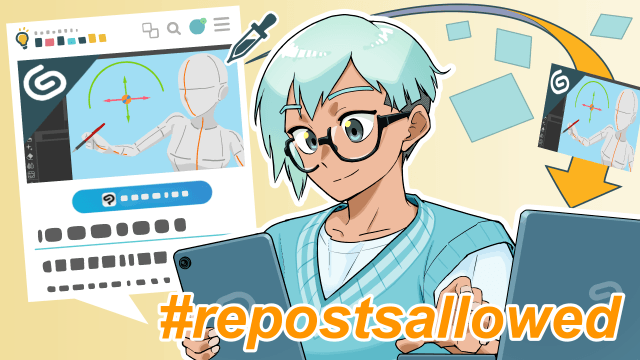Creating a scifi spaceship interior
Sketching
In this TIPS tutorial I'll be showing you how I went from my initial sketching stage to painting my finished illustration of a fantasy/sci-fi spaceship interior. It was a project where I had to work in a different style than I usually do, but hopefully you can pick up a few tips and tricks so shorten your working time and make interiors feel less daunting.
For this illustration I wanted to use one point perspective so the viewer feels as if they are in the drivers seat of the ship, after gathering references of other spaceship interiors I sketched a few different rough thumbnails alternating the perspective lines positioning.
After settling on what thumbnail I wanted to move forward with I used the symmetry ruler to draw a rough sketch and plan out the composition and positioning of the panels and steering wheel.
Next I lowered the opacity of my rough sketch and started to work on a detailed sketch. I still use the symmetry ruler on the big parts of my sketch such as the steering wheel and panel boards, but for smaller details such as monitors or wires I didn't. I still keep this part rough as it'll only be used as a guideline and then later we will be painting over it.
Starting to paint
I set my sketch to multiply, change the hue to blue so that it blends in with the colour scheme more and then I create a new layer underneath using a dark purple colour. Above the dark layer we have just created I create a new layer and choose a lighter purple and start to block in the shape of the interior structure of the ship.
Creating new layers under my multiplied line art layer I start to block in the rough darker tones on the sideboard and foot well.
Choosing the a bright purple tone I now create a new layer on top of the darker coloured layers we just created and painted and now paint in the brightest points where light is shining in and hitting the surfaces of the ship. As we painted in the darker areas first it is now easier to figure out where the lightest parts go.
Creating a new layer I choose an orange shade and paint in the buttons on the wheel, and then creating a new layer I set it to Add (Glow) and using the same orange shade with the airbrush I paint in some ambient lighting from the buttons.
The next thing I focus on is blocking in the front panel and adding in button details on the monitors and adding in the screws on the body of the ship interior.
Once most of the flat base layers are painted I start to go in and choose a light purple shade on a new layer and add in details on the wires inside the ship, painting a rim light on everything else such as the monitors and steering wheel.
Using the selection tool and alternating between using the circle, rectangle and polyline tool I create a new layer and paint in the base of the UI display, using a light purple to fill in the selected areas and then using a white and an airbrush to paint around the edges of the selection.
After establishing the sections that I want transparent displays to show up on I searched for royalty free HUD UI displays that I'd be able to use in my illustration and picked a few that I liked, copying and pasting them over the sections and then setting each HUD UI layer to Add (Glow). I also decided to add in more detail to the switchboard on the side after looking again at my references, the right hand side of my illustration looked empty compared to the left so in order to balance it out I added coloured switches and a range of dials.
Painting a galaxy (the easy way)
Using Clip Studio Paint Assets I found a brush set to easily create galaxies and then edited the hue of the layer so that it matched with the colour scheme of the illustration.
Finished illustration
And that's the finished illustration! For a few last touches I added a new Add (Glow) layer and a airbrush brush softly painted a large purple circle to add more vibrancy to the galaxy background and then painted in blocks of light reflections on the side windows of the ship.
Good luck painting, I hope the breakdown of my illustration helped!























Comment